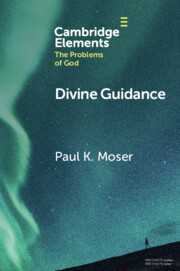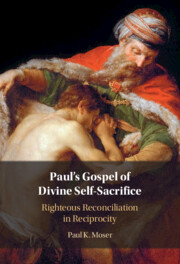Refine search
Actions for selected content:
3 results
8 - Jacobi and the German Protestant Tradition
- from Part II - Faith and Revelation: Debates on Theism, Atheism, and Nihilism
-
-
- Book:
- Friedrich Heinrich Jacobi and the Ends of the Enlightenment
- Published online:
- 09 February 2023
- Print publication:
- 16 February 2023, pp 139-152
-
- Chapter
- Export citation

Divine Guidance
- Moral Attraction in Action
-
- Published online:
- 15 September 2022
- Print publication:
- 20 October 2022
-
- Element
- Export citation

Paul's Gospel of Divine Self-Sacrifice
- Righteous Reconciliation in Reciprocity
-
- Published online:
- 08 September 2022
- Print publication:
- 15 September 2022
